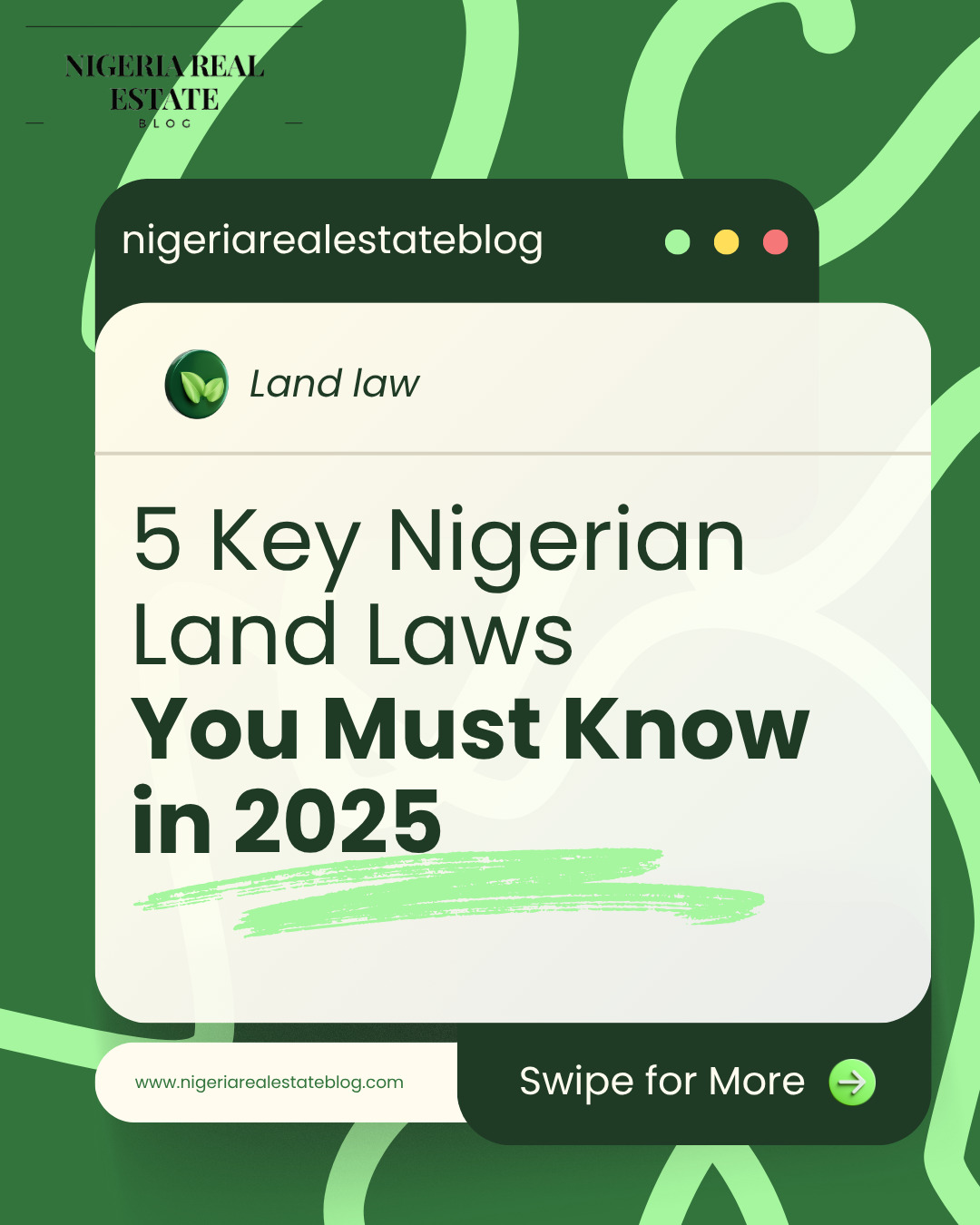
5 Key Nigerian Land Laws you must know in 2025
Land disputes cost Nigerians ₦1 trillion annually, with 70% tied to unclear titles (source: Vanguard, 2025). Navigating Nigeria’s land laws is critical to avoid scams and secure your property, whether you’re buying a plot in Epe or building in Abuja. In 2025, understanding these laws is non-negotiable for safe investments.
This Land Law guide outlines 5 key Nigerian land laws you must know in 2025, with steps, costs, and tips. Perfect for buyers, investors, and realtors, it’s your shield against land pitfalls.
Table of Contents
- Land Use Act of 1978: Core of Ownership
- Certificate of Occupancy (C of O)
- Governor’s Consent for Transfers
- Survey Plan Requirements
- Anti-Land Grabbing Laws
- How to Protect Your Land Investment
1. Land Use Act of 1978: Core of Ownership
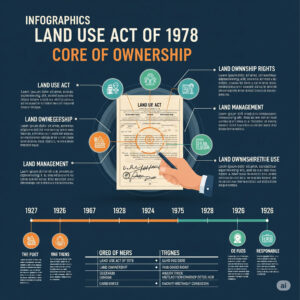
What It Is: Vests all land in state governors, who grant rights of occupancy.
Why It Matters: You don’t “own” land outright; you hold a lease (99 years max).
Cost: ₦50,000–₦200,000 for statutory rights.
Example: Temi, an Epe buyer, paid ₦100,000 for a statutory right, securing his plot legally.
Tip: Verify with state land registries (₦10,000). Use proptech like LandWey (see our proptech guide).
2. Certificate of Occupancy (C of O)
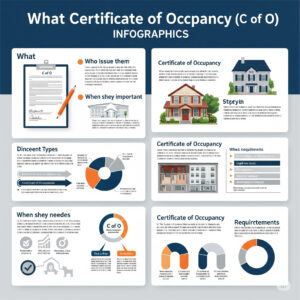
What It Is: State-issued title proving your right to land.
Why It Matters: 60% of disputes stem from missing C of Os (source: BusinessDay).
Cost: ₦150,000–₦500,000 (Lagos); 6–12 months processing.
Example: Kemi, a Lekki investor, spent ₦200,000 on a C of O, boosting her plot’s value by 20%.
Tip: Apply via LASRERA (lasrera.lagosstate.gov.ng, ₦20,000 verification).
3. Governor’s Consent for Transfers
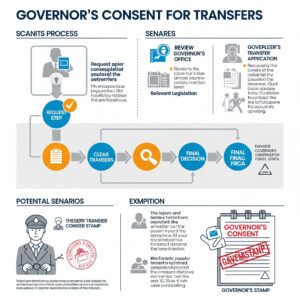
What It Is: Required for transferring land titles, per Land Use Act.
Why It Matters: No consent, no legal transfer—40% of sales fail without it.
Cost: 3–5% of land value (₦300,000 for a ₦10M plot).
Example: Chidi, an Abuja buyer, paid ₦350,000 for consent, finalizing his purchase in 3 months.
Tip: Hire a lawyer (₦50,000) to speed up approval.
4. Survey Plan Requirements
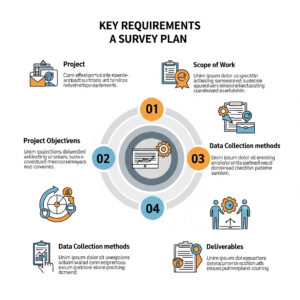
What It Is: Legal map of your land, registered with the Surveyor-General.
Why It Matters: Unregistered surveys cause 30% of boundary disputes.
Cost: ₦80,000–₦200,000 (urban areas).
Example: Aisha, a Port Harcourt investor, paid ₦100,000 for a survey, avoiding a neighbor dispute.
Tip: Use licensed surveyors via NIS (nisng.org, ₦5,000 verification).
5. Anti-Land Grabbing Laws
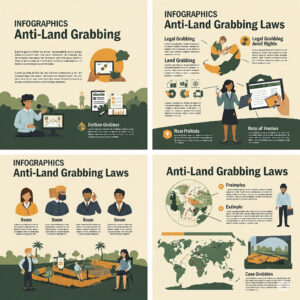
What It Is: State laws (e.g., Lagos Property Protection Law 2016) penalize illegal land seizures.
Why It Matters: Protects against “omo-onile” scams, saving buyers ₦500M yearly.
Cost: Free to report; ₦30,000 for legal support.
Example: Emeka, an Ibeju-Lekki buyer, reported land grabbers to LASRERA, reclaiming his ₦5M plot.
Tip: Report to state task forces (lagosstate.gov.ng, free).
6. How to Protect Your Land Investment
- Verify Titles: Check C of O with LASRERA or ESVARBON (₦20,000–₦50,000).
- Get Consent: Budget 3–5% for transfers (₦300,000 for ₦10M).
- Register Surveys: Use licensed surveyors (₦80,000).
- Use Proptech: Platforms like LandWey verify titles (free).
- Know Your Rights: Study the Land Use Act (free online).
Secure Your Land in 2025
Nigeria’s land laws protect your property if you know them. This Land Law guide ensures you buy and invest safely in 2025. Share it to save others from disputes!
Share This Post: Post on LinkedIn, X, WhatsApp, Instagram, or TikTok to spread the land law knowledge! 📜
Subscribe to Nigeria Real Estate Blog for more land law tips, proptech insights, and investing guides!


